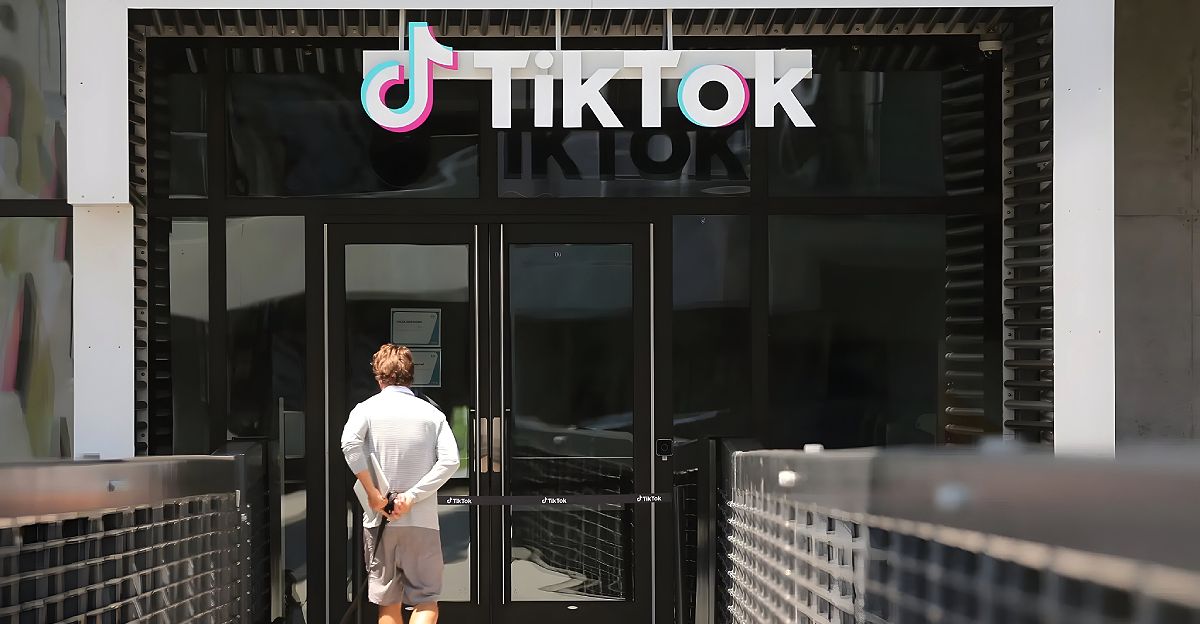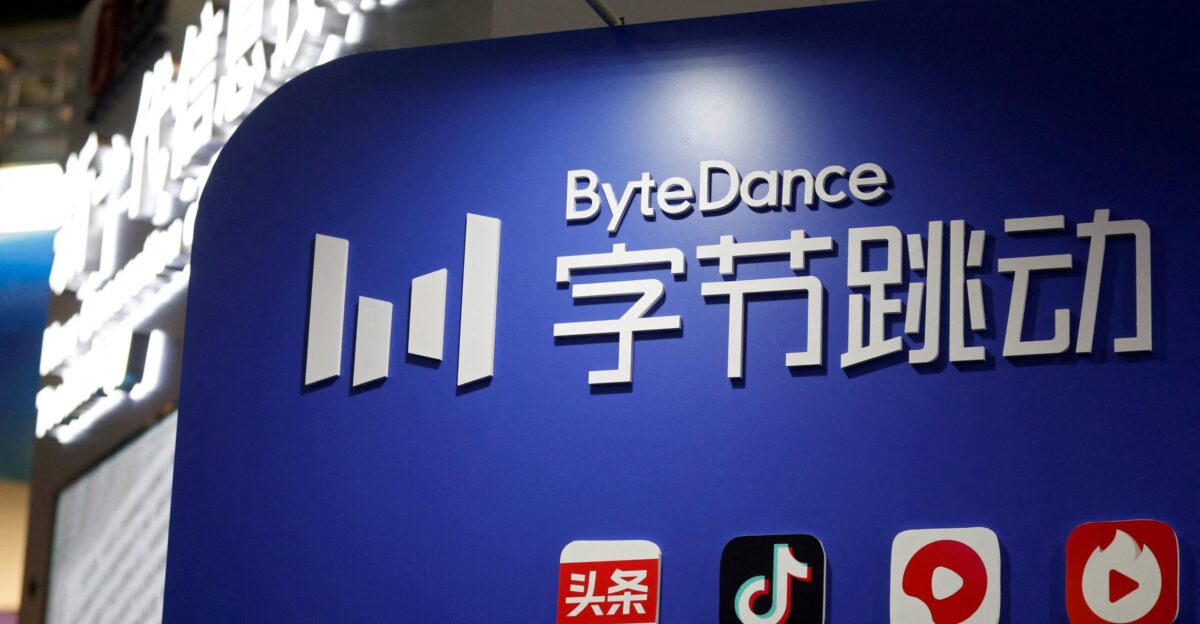
Something significant is unfolding in the US digital marketplace, signaling a major shakeup in online shopping. While the details remain under wraps, a leading social media giant’s e-commerce arm is reportedly under pressure. This shift could reshape how consumers and businesses engage with social commerce in the US, raising questions about the stability and future of this growing sector. The rise of social commerce over the past few years has been meteoric, with platforms integrating shopping directly into social experiences.
However, recent developments suggest that not all players are thriving equally. Industry watchers and users notice changes that could affect how products are discovered, marketed, and purchased online. This emerging trend hints at a broader recalibration in the digital retail landscape, where innovation meets regulatory, operational, and market challenges. The coming months will determine which companies will lead the next phase of online shopping evolution.
Nationwide Stakes in Tech Hubs

From Seattle to Silicon Valley and New York, the ripple effects of this development are being felt across key US tech hubs. These cities are home to thousands of employees in the social commerce sector, many directly involved with the company at the center of this shakeup. The impact is not just about jobs but also the broader ecosystem supporting innovation and consumer engagement. Employees face uncertainty, while consumers may see changes in how they interact with social shopping platforms.
The challenges this major player faces underscore the fragility of the US’s rapidly evolving social commerce market. As competition intensifies and regulatory pressures mount, the stakes are high for both workers and consumers. This story is a reminder that the tech industry’s successes are often accompanied by volatility, and the coming weeks could bring further developments affecting multiple regions across the country.
The Social Commerce Boom of the Early 2020s

Recall the early 2020s when social commerce and influencer marketing surged, promising a revolutionary online shopping method. Platforms like TikTok Shop emerged as pioneers, rapidly growing and capturing consumer attention through innovative in-app shopping experiences. This era sparked optimism about transforming retail through social media, blending entertainment with seamless purchasing. Influencers became powerful sales drivers, and brands eagerly embraced these new channels to reach younger, digitally native audiences.
Integrating live streaming, short videos, and direct shopping links created a dynamic environment where discovery and purchase happened in a single scroll. This boom was fueled by consumer enthusiasm and technological advances, making social commerce one of the fastest-growing e-commerce segments. However, as the market matured, challenges around profitability, user retention, and regulatory scrutiny began to surface, signaling that the initial excitement might give way to a more complex reality.
Signs of Struggle Emerge

The US e-commerce division has faced hurdles despite global expansion and successes elsewhere. Sales targets have been missed, and internal challenges have mounted. These struggles have led to difficult decisions, including multiple layoffs, signaling that the initial momentum has slowed and operational adjustments are underway. The company’s US arm has grappled with stiff competition from established e-commerce giants and niche social commerce platforms. Moreover, regulatory pressures on data privacy and national security concerns have complicated operations.
These factors have forced leadership to rethink strategy, focusing on streamlining operations and cutting costs. This period of retrenchment contrasts sharply with the rapid growth seen in other regions, especially Asia, where social commerce has flourished. The US market’s unique challenges highlight the difficulty of transplanting successful models across borders without adapting to local market dynamics and regulatory environments.
TikTok Shop’s Third Round of US Layoffs

The core fact: TikTok Shop, TikTok’s US e-commerce division, is conducting its third round of layoffs since April 2025. These cuts are part of a strategic realignment as the company seeks to address ongoing challenges and shift priorities amid a demanding market environment and regulatory uncertainties. According to Bloomberg and other sources, this latest round of job cuts affects a significant portion of the US workforce dedicated to e-commerce operations.
The layoffs reflect efforts to reduce expenses and refocus on core business areas that show promise. This is not an isolated incident but part of a broader restructuring trend within TikTok’s parent company, ByteDance, which is also facing pressure from US regulators to divest its US operations. The layoffs underscore the difficulties TikTok Shop faces in gaining a foothold in the competitive US market, where consumer preferences, regulatory scrutiny, and geopolitical tensions create a challenging environment for growth.
Regional Impact: Seattle’s Role and Changes

Seattle, a key hub for TikTok Shop’s US operations, has experienced significant staff reductions. The city hosts many of the company’s employees working on product development, marketing, and logistics for the US e-commerce platform. Recent layoffs have led to a noticeable decrease in the local workforce, with some employees departing amid uncertainty about the division’s future. Notably, TikTok Shop is reportedly replacing some US-based roles with managers connected to China, aiming to replicate the e-commerce success of its parent company, ByteDance, in Asia.
This shift signals a strategic pivot toward leveraging expertise from regions where TikTok Shop has thrived. However, it also raises questions about the sustainability of US operations and the potential impact on local innovation ecosystems. The Seattle community, known for its vibrant tech scene, is watching closely as these changes unfold, reflecting broader tensions between global expansion ambitions and local operational realities.
Franchisee and Seller Uncertainty

Small business owners and franchisees using TikTok Shop feel the strain as layoffs and restructuring create uncertainty about the platform’s future. Many sellers rely heavily on TikTok Shop to reach customers and grow their digital storefronts. The instability within the US division has led to concerns about ongoing support, platform reliability, and long-term viability. Sellers report difficulties navigating shifting policies and decreased responsiveness from the platform’s support teams.
For many, TikTok Shop was a promising new avenue to expand their reach beyond traditional marketplaces. With the division’s future unclear, these entrepreneurs face tough decisions about whether to continue investing time and resources into this channel. The situation highlights the ripple effect that corporate restructuring can have on small businesses and the broader ecosystem of social commerce, where platform health directly influences seller success.
Competitors Seize the Moment

As TikTok Shop navigates these challenges, competitors in social commerce and broader e-commerce sectors are intensifying their efforts to capture market share. Established players like Instagram Shopping, Facebook Marketplace, and Amazon Live ramp up features and marketing to attract consumers and sellers. Emerging platforms are also innovating with new shopping experiences, leveraging augmented reality, influencer partnerships, and streamlined checkout processes.
This competitive pressure makes it harder for TikTok Shop to regain momentum in the US market. Competitors are capitalizing on TikTok’s turbulence by courting disaffected sellers and consumers looking for stable, reliable platforms. The battle for dominance in social commerce is heating up, with innovation and customer experience as key battlegrounds. For TikTok Shop, the challenge is to stabilize operations and differentiate itself in an increasingly crowded and competitive landscape.
Changing Consumer Behavior and External Factors

Consumer habits are evolving, with increased scrutiny on social commerce and the impact of tariffs on China affecting sales. Shoppers are becoming more cautious about where and how they buy products online, influenced by privacy concerns and geopolitical tensions. Tariffs and supply chain disruptions have also raised costs for sellers relying on imported goods, complicating pricing strategies on platforms like TikTok Shop.
Additionally, consumers are exploring alternative shopping experiences, such as direct-to-consumer websites and niche marketplaces, reducing reliance on social media platforms for purchases. These shifts have reshaped the marketplace, complicating TikTok Shop’s growth in the US and adding pressure amid an already challenging environment. Understanding and adapting to these changing behaviors is critical for any social commerce platform aiming to succeed in the current climate.
Uncertain Future Amid Regulatory Pressure

Looking ahead, TikTok Shop faces a critical deadline in mid-September 2025 for divestment from its Chinese parent company, ByteDance, to avoid a US ban. Regulatory uncertainty clouds the platform’s US prospects, leaving its future as a social commerce pioneer in question. The US government’s concerns about data security and foreign influence have intensified scrutiny on TikTok’s operations, prompting demands for structural changes.
This looming deadline forces TikTok Shop to make strategic decisions quickly, balancing regulatory compliance and business viability. The outcome will affect TikTok Shop and set precedents for other foreign-owned tech companies operating in the US. As the situation unfolds, industry observers and stakeholders await clarity on whether TikTok Shop can maintain its US presence or will have to pivot dramatically in response to political and market realities.